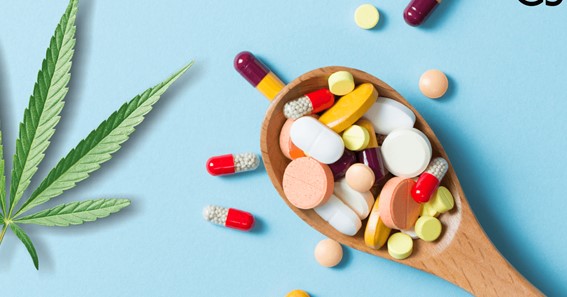Cannabidiol (CBD)-based products are all the rage these days, offering treatment from anything from sleeplessness to hot flashes to chronic pain and seizures. Some of these statements are true, while others are merely hype. But what harm can it do to give it a shot? Not so soon, though. CBD is a physiologically active chemical that might have unexpected repercussions which you will get to know in this article. Let’s go!
Where to buy CBD products?
You can buy CBD from various stores which can be found online as well as offline. There are many reputed brands like CBDfx which you can trust and choose without any worries. There are many CBD products like CBD gummies, oil, balm, creams, and many more. You can buy quality and lab-tested CBDfx gummies by clicking here https://cbdfx.com/collections/cbd-gummies/ and get them directly from CBDfx store to your home.
What kind of drug interactions can happen with CBD?
The same broad family of liver enzymes known as CYP450 breaks down a vast range of medicines, including CBD.
Some enzymes in this family are inhibited by CBD. This causes patients to break down some medications more slowly, increasing the risk of adverse effects unless your doctor changes the amount. CBD drug interactions, on the other hand, activate other enzymes in this family, speeding up the breakdown of certain medicines, making them potentially less effective unless the dose is raised.
Click here – How To Buy & Use CBD Capsules
When CBD is used with certain medications, for example, you may suffer more adverse effects:
- Antidepressants are medications that are used to treat depression (such as fluoxetine, or Prozac)
- Medications that might make you drowsy (antipsychotics, benzodiazepines)
- Antibiotics containing macrolides (erythromycin, clarithromycin)
- Medication for the heart (some calcium channel blockers)
There’s still a lot of mystery around how CBD drug interactions cope up with the body’s drug-metabolizing enzymes. We know that CBD affects some drug-metabolizing enzymes, but not others and that there are many more about which we don’t currently have any information. to know more about CBD, you can read a beginner’s guide to CBD.
How Could CBD Interact with Medications?
CBD is usually safe and well-tolerated by most people, according to current studies, with minimal adverse effects. However, owing to the way the human body metabolizes both medicines and supplements, CBD drug interactions take place with other treatments.
Our bodies must break down or metabolize medication or other substances when we ingest them. This occurs all across the body. Our bodies generate cytochrome P450 (CYP450) enzymes to convert these chemicals so that they may be more readily removed from the body.
Any drug or supplement that affects CYP450 has the potential to alter how our systems metabolize other drugs by speeding up or slowing down metabolism. This can result in a drug interaction since the chemical in issue may stay in our systems for a longer period or exit our bodies for a shorter time.
The CYP3A4 enzyme, which belongs to the CYP450 family, is responsible for the breakdown of some cannabinoids, including CBD. CBD, on the other hand, interacts with CYP3A4 when it is metabolized. CYP3A4 is also inhibited by certain medicines. As a consequence, some medicines may not be metabolized as well when combined with CBD, just as CBD may not be metabolized as well when used with certain pharmaceuticals.
When the CYP3A4 enzyme is blocked – whether by a cannabinoid or a medicine – it might result in CBD drug interactions since your body won’t be able to digest the medication (or CBD) properly. If the medicine lingers in your system for too long, it may cause more adverse effects, or it may not be as effective if your body metabolizes it too fast.
What do you need to know about CBD’s interactions with other medications?
Studies on Epidiolex, the only FDA-approved CBD medication, which is intended to treat uncommon types of epilepsy, provide the most direct information. Epidiolex has been reported to cause a 30% rise in blood levels of the blood thinner warfarin, increasing the risk of bleeding. It can also interfere with other epilepsy medicines.
Conclusion
CBD may interact with a variety of different items, including over-the-counter medicines, herbal supplements, and prescription drugs. Some drugs should never be used with CBD, and the dosage of other medications may need to be adjusted or lowered to avoid significant complications.
Click here – Best sources to Download Hollywood movies in HD



